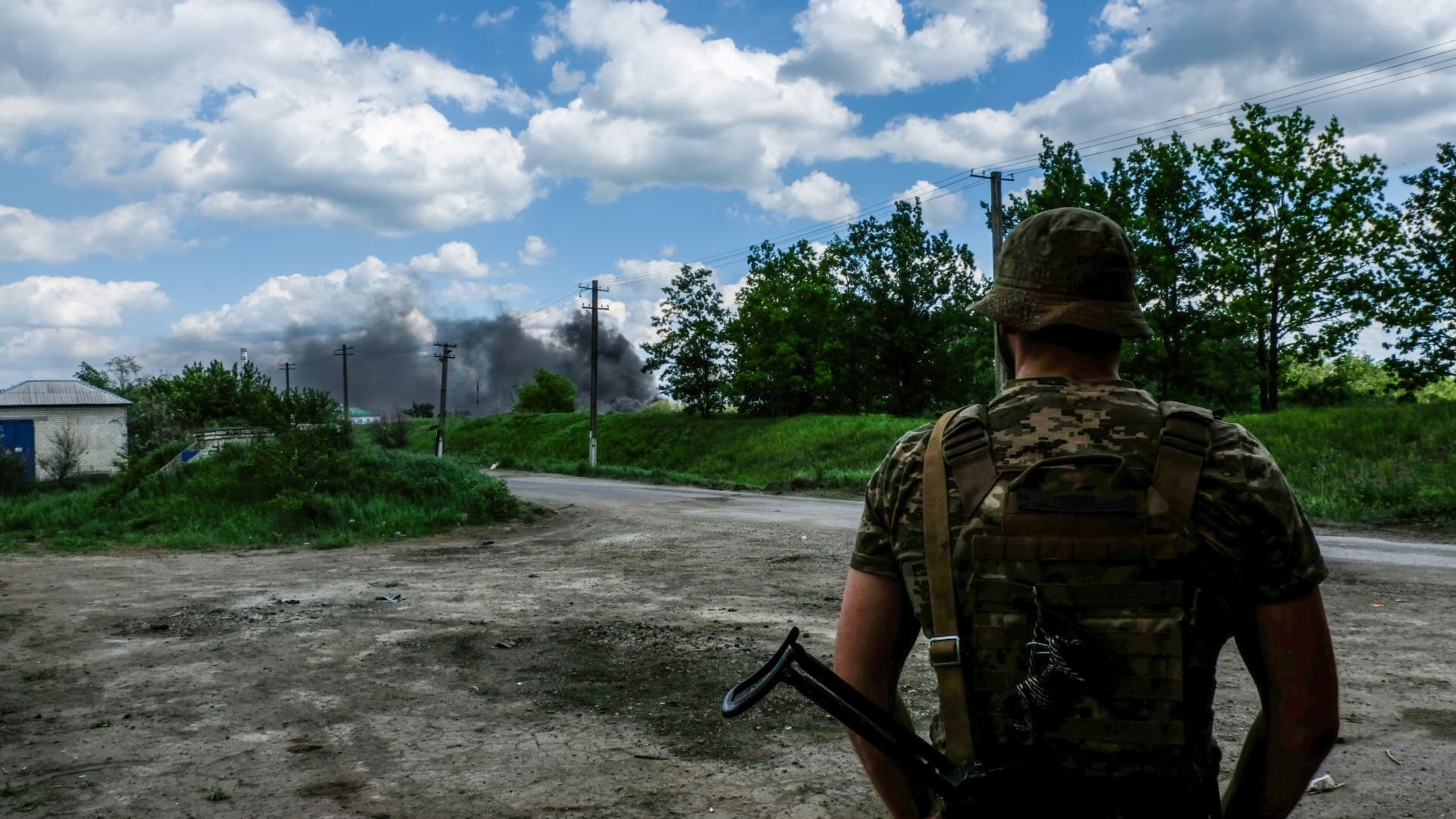
Russian forces unlikely to advance rapidly in Severodonetsk, think tank says
Russia has pressed its offensive to capture key points in the eastern Donbas region of Ukraine, with more bombing of residential areas.
Aris Messinis | Afp | Getty Images
Russian forces have begun direct assaults on built-up areas in Severodonetsk despite not yet having fully encircled the Ukrainian city, according to The Institute for the Study of War, a U.S.-based think tank.
In its latest daily assessment, the ISW said Russian forces were likely to struggle to take ground in Severodonetsk itself, citing a poor track record in operations in built-up areas in urban terrain throughout the war to date.
“Russian forces will likely continue to make incremental advances and may succeed in encircling Severodonetsk in the coming days, but Russian operations around Izyum remain stalled and Russian forces will likely be unable to increase the pace of their advances,” the ISW said.
— Sam Meredith
Ukraine says Russian advances could force retreat in part of east
Russian forces have began direct assaults on built-up areas of Severodonetsk, a city in the Luhansk Oblast and one of Russia’s immediate tactical priorities.
Sopa Images | Lightrocket | Getty Images
Ukrainian forces may have to retreat from their last pocket in the Luhansk region to avoid being captured, a Ukrainian official said, as Russian troops press an advance in the east that has shifted the momentum of the three-month-old war.
A withdrawal could bring Russian President Vladimir Putin closer to his goal of capturing eastern Ukraine’s Luhansk and Donetsk regions in full. His troops have gained ground in the two areas collectively known as the Donbas while blasting some towns to wastelands.
Luhansk’s governor, Serhiy Gaidai, said Russian troops had entered Sievierodonetsk, the largest Donbas city still held by Ukraine, after trying to trap Ukrainian forces there for days, though adding that Russian forces would not be able to capture the Luhansk region “as analysts have predicted”.
“We will have enough strength and resources to defend ourselves. However, it is possible that in order not to be surrounded we will have to retreat,” Gaidai said on Telegram.
Gaidai said 90% of buildings in Sievierodonetsk were damaged with 14 high-rises destroyed in the latest shelling.
— Reuters
Some 10,000 Russian troops estimated to be in Ukraine’s Luhansk region
Luhansk regional governor Serhiy Gaidai has said there are approximately 10,000 Russian troops in Ukraine’s eastern region.
“These are the [units] that are permanently in Luhansk region that are trying to assault and are attempting to make gains in any direction they can,” Gaidai said on Ukrainian television.
CNBC was not able to independently verify this report.
— Sam Meredith
US wins latest legal battle to seize Russian yacht in Fiji
The United States won the latest round of a legal battle to seize a $325-million Russian-owned superyacht in Fiji, with the case now appearing headed for the Pacific nation’s top court.
The case has highlighted the thorny legal ground the U.S. finds itself on as it tries to seize assets of Russian oligarchs around the world. Those intentions are welcomed by many governments and citizens who oppose the war in Ukraine, but some actions are raising questions about how far U.S. jurisdiction extends.
Fiji’s Court of Appeal dismissed an appeal by Feizal Haniff, who represents the company that legally owns the superyacht Amadea. Haniff had argued the U.S. had no jurisdiction under Fiji’s mutual assistance laws to seize the vessel, at least until a court sorted out who really owned the Amadea.
Haniff said he now plans to take the case to Fiji’s Supreme Court and will apply for a court order to stop U.S. agents sailing the Amadea from Fiji before the appeal is heard.
As part of its ruling, the appeals court ordered that its judgment not take effect for seven days, presumably to give time for any appeals to be filed.
The U.S. argues that its investigation has found that behind various fronts, the Cayman Islands-flagged luxury yacht is really owned by the sanctioned Russian oligarch Suleiman Kerimov, an economist and former Russian politician.
— Associated Press




